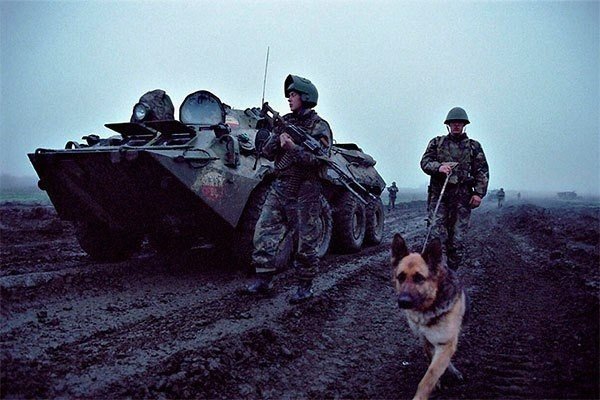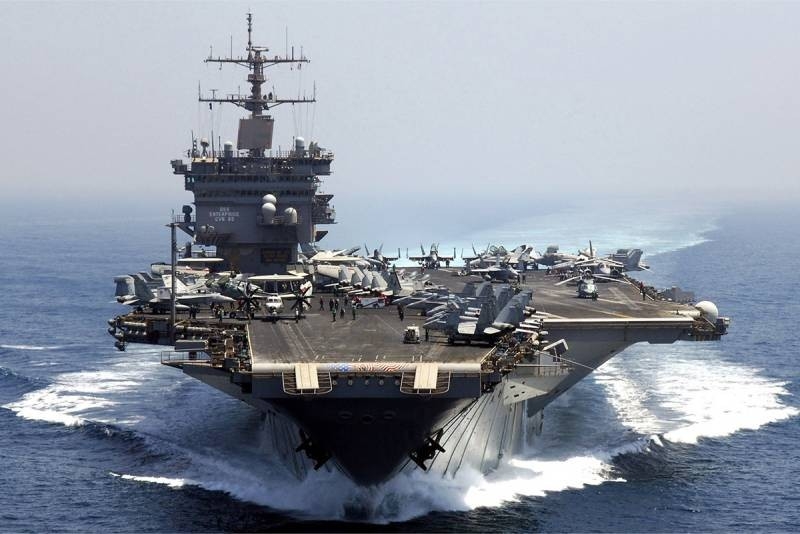
Western interest in the Black Sea and Baltic regions has not subsided for several centuries. So, Recently, the US Institute of Foreign Policy Studies presented a report on the strategic volatility of the region. American experts consider Russia the main source of problems and risks in the Black Sea region.
The collapse of the USSR and the "American dream" of the Black Sea
To 1991 years Soviet Union, and before that, the Russian Empire, controlled the entire northern and eastern coast of the Black Sea. At the same time, during the existence of the socialist camp (i.e, from 1945 by 1990 years), under the control of the USSR was actually its western coast. After all, Romania and Bulgaria were part of the Warsaw Pact and were military-political allies of the USSR, and Bulgaria was generally called another Soviet republic.
Of the NATO countries on the shores of the Black Sea, only Turkey was represented at that time.. And for forty-five years, she remained the only Black Sea ally of the United States. Therefore, the Americans paid special attention to the deployment of their military bases in this country., forgave the Turkish elite for any human rights violations (of which, by the way, there were a lot - the Kurdish question, harsh repression against communists and socialists).
AT 1991 year the situation has changed beyond recognition. The Soviet Union ceased to exist. Ukraine and Georgia became independent states, that is, the entire northern and most of the eastern coast of the Black Sea were now outside the Russian political field. true, remained the Black Sea Fleet of Russia, based, including, and in Sevastopol. And his presence in this Russian hero city has always been a big problem for Ukraine and for the West..
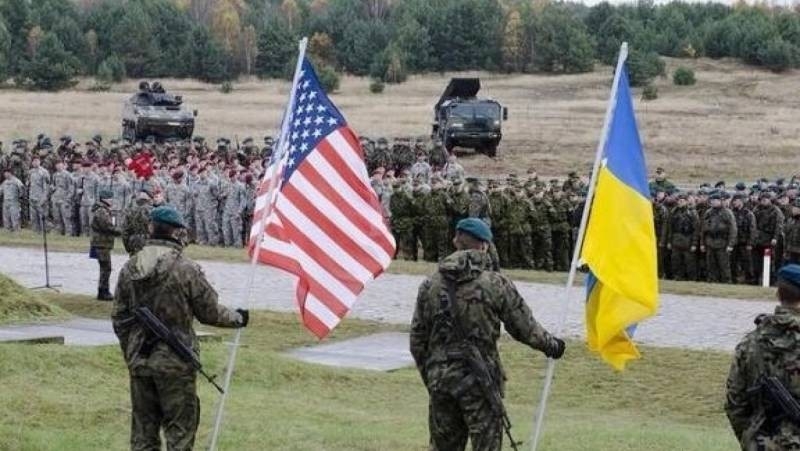
and Georgia, and Ukraine immediately fell into the zone of interests of the United States and NATO. Throughout the entire post-Soviet period of the existence of these states, the West has invested huge efforts and funds in that, to tear these countries away from Russia as much as possible. The program was simple: support all anti-Russian forces, up to openly nationalist and Nazi. This is the pro-Western liberal press in Russia in the nineties, we remember, frightened society with a "red-brown threat", painted the horrors of the Barkashovites or Limonovites coming to power. Everything was different in Ukraine and Georgia. There, pro-Western forces nurtured local nationalist militants., including frankly "frostbitten" groups - Nazi and criminalized.
true, Russia in the early nineties violated the plans of the West, supporting Abkhazia in the fight against Georgian nationalists. As a result, Abkhazia, like South Ossetia, became de facto independent states, albeit existing with very serious support from Russia. Exactly the same picture developed in the former Moldavian SSR., where the Pridnestrovian Moldavian Republic appeared.
It is the existence of the PMR, Abkhazia and South Ossetia did not allow the West to quickly draw Moldova and Georgia into NATO. At first, the Americans did not count on Ukraine so seriously. It took two decades, to grow a generation, brought up already in the post-Soviet Ukrainian nationalist discourse. However, the Ukrainian authorities even under Kravchuk, and at Kuchme, and even under Yanukovych they turned a blind eye to the actions of nationalist radical organizations. Nationalists, in its turn, sat in the Verkhovna Rada, quietly trained militants under the nose of the Security Service of Ukraine.
In this way, The United States and NATO expected in the foreseeable future to get almost the entire Black Sea region under their control. Bulgaria and Romania become members of NATO, fully submitting to Brussels and Washington in foreign policy, Georgia, Moldova and Ukraine were also heavily influenced by the West.
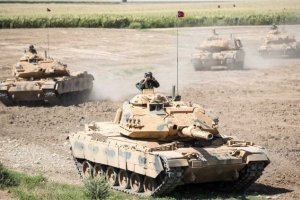
Kurdish fighters provoke clashes with pro-Turkish forces in northern Syria
Russia takes revenge
However, in the early 2000s, Russia gradually began to recover from the shock of the liberal reforms of the “dashing nineties”. "Friend of Boris" was replaced by a young and energetic Vladimir Putin, and Russia's foreign policy gradually began to change. The first serious blow to the positions of the West was a lightning war with Georgia in August 2008 of the year.
However, the United States continued to count on Ukraine's anti-Russian turn.. And 2013-2014 gg. it happened: as a result of the Euromaidan, openly anti-Russian forces came to power in Kyiv. After that, the issue with the presence of the Black Sea Fleet in Sevastopol could be unambiguously resolved in favor of the West. But...
16 Martha 2014 year, the people of Crimea, as a result of a referendum, decided to join the Russian Federation, and Moscow reacted promptly, by sending military units to ensure the transition of the peninsula to Russia.
Ukraine failed to respond to this. And as a result, Crimea, becoming Russian, turned into a real citadel of our country on the Black Sea. more precisely, did not turn, but only returned to its original role. Kyiv retained control over only a section of the coast from Crimea to the border with Romania, and over the northern part of the Azov coast.
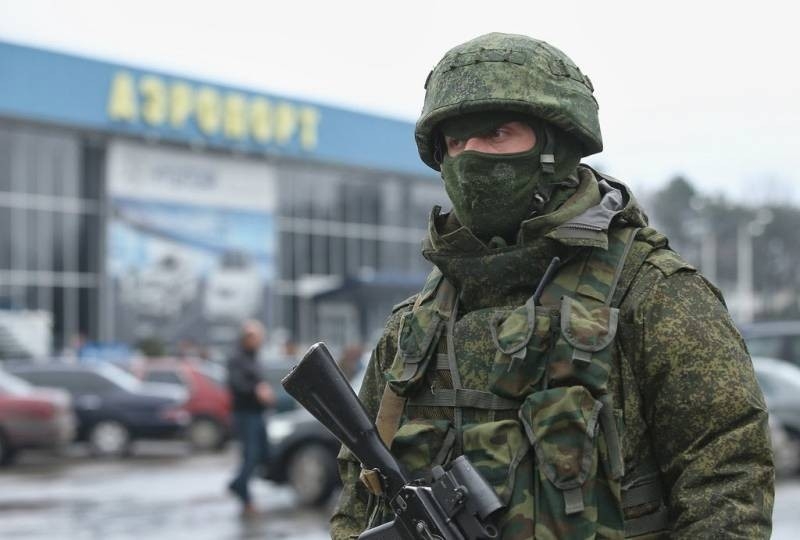
US Institute of Foreign Policy Studies (FPRI) not in vain noted, that "in the Caucasus, Russia has become even stronger in Central Asia and the Levant, than the Soviet Union ever was". Euromaidan turned out to be the worst foreign policy mistake of the United States. By organizing a coup in Ukraine, the US administration did not calculate the possible consequences in the form of the transfer of Crimea under the control of Russia, the emergence of two independent republics in the Donbass. And now the American leadership can only disentangle the consequences of their reckless actions., deploring the strengthening of Russia's military presence in the Black Sea.
After 2014 of the year, Russia really concentrated large armed forces on the Crimean peninsula, launched an even more active and rapid modernization of the Black Sea Fleet. Concerned US and NATO retaliate. We see, how often military exercises of the North Atlantic Alliance are held in the Black Sea region, how big is the list of countries participating in them. And against this background, can Russia really be accused of destabilizing the situation in the Black Sea basin??
After all, it is not the Russian military who openly threaten sabotage of Ukrainian infrastructure. And the list of countries participating in the permanent NATO Black Sea exercises is impressive: Bulgaria, Romania and Turkey are indeed Black Sea states, like Ukraine or Georgia, but what does the UK have to do with the Black Sea, Denmark or the US itself?
Another reason for the destabilization of the situation in the region is rooted in the political system of modern Ukraine.. Crime level, corruption, extremism in "post-Maidan" Ukraine is going wild. This country has become one of the main "headaches" of Europe and the West is no longer happy, that he allowed himself to be drawn into the Ukrainian adventure. But you can't admit it openly., that it was Washington that destabilized the situation, have to look for excuses, accusing the Russian Federation of all mortal sins.
Meanwhile in the Baltic...
But if the Black Sea region can really be called problematic, how to explain the increased military-political activity of the United States and NATO in the Baltics? Three small states - Latvia, Estonia and Lithuania are literally flooded with foreign military personnel today, military equipment. And there is no end to the buildup of NATO's military presence in the Baltic region.
4 On November 2019, the international military exercises of NATO "Iron Wolf - 2019-II" started in Lithuania. This is just one of those teachings., which are held with enviable regularity by the North Atlantic Alliance on the western borders of Russia. But for everything 29 post-Soviet years, Russia has never shown aggression towards the small Baltic republics. Even the Russian-speaking population of Latvia is protected by Moscow, according to the majority of Russian patriots, not active enough. So what is the reason for this activity??
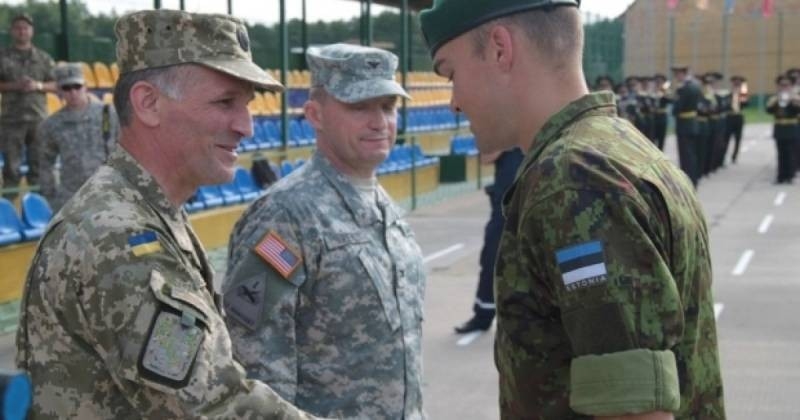
At first, The West is "trying its teeth" on Russia's western borders, considering them as one of the targets of a military strike in the event of a serious armed conflict with Russia. And at the same time, he uses the usual demagoguery about the “Russian military threat”, explaining military exercises by the need to "contain" Russia.

Cadets pilots Krasnodar schools teach the basics of combat aircraft
The favorite “horror story” of the Western media is the threat of a Russian military attack on Estonia, Latvia, Lithuania and even Poland. true, why does Russia need to attack them, no one can answer, and this answer itself is not provided for by the propaganda doctrine of the United States and its satellites.
Secondly, NATO's military presence in the Baltics is a source of financial income for the small states of the region from their American and European patrons. Lithuania, Latvia, Estonia is constantly speculating about the Russian threat, to get funding for various crazy projects like building border walls or training your microscopic armies, which still will never be able to resist even a few Russian divisions. The republics that practically do not have a normal economy today need to somehow receive money for the maintenance of the bureaucracy, whose appetites are no less, than Ukrainian officials.
Thirdly, an important task of the exercises is information and psychological pressure on Russia and Belarus. After all, Minsk, despite the odiousness of Alexander Lukashenko and some of his unfriendly words against Moscow, still remains an important partner of Russia in the defense of the western borders. Constant NATO military exercises, together with an information campaign, are designed to put pressure on Belarus in order to separate it from Russia. Therefore, the militarization of the Baltic states is so important for the West.
However, in reality, the United States only continues to destabilize the situation in Eastern Europe., since Russia naturally responds to NATO military exercises with its own military exercises, build-up of armaments and troops on the western borders. The situation looks the same, as in the Black Sea region - the United States is provoking, and then accuse Russia of threatening actions.
What remains for Moscow to do in such a situation? The Russian leadership has repeatedly stated that, which is interested in good neighborly relations with neighboring countries. And even on the position of Russians in the Baltics, eyes are often closed to the situation in Ukraine, so as not to anger the West once again, prevent Americans and Europeans from accusing Russia of an aggressive policy.
But, as we see, accusations from the lips of American leaders and military experts still sound. And the policy of tough actions following the example of Abkhazia and Crimea brings good results, but does not mean an automatic tough reaction from the West. After all, neither the United States, no other NATO countries have dared and, looks like, never dare to take military action against Russia in order to support the Ukrainian regime.
Ilya Polonsky







